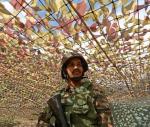You are here
Critical minds for critical times
Nov 05,2017 - Last updated at Nov 05,2017
Amajor shift took place over the past few years in media production and consumption. The Middle East, especially, is no exception to this, as Arab youth are becoming more connected to the Internet and less interested in traditional media.
Jordan, where youth make up 70 per cent of the population, has one of the highest percentages of Facebook users in the Arab world. Internet penetration was 87 per cent in 2016.
Such developments have prompted journalists and academics to seek ways to protect the profession and actively engage citizens to help them safely navigate through propaganda, “fake news”, “alternative facts” and “post-truths”.
One of the key steps being proposed is to introduce Media and Information Literacy (MIL) in schools and updating curricula where it exists. MIL is the ability to access, critically evaluate and produce media and information wisely and ethically.
Last week marked Global Media and Information Literacy (MIL) Week, initiated by UNESCO in 2012. This year’s theme calls for reimagining ways of learning in information environments, particularly relevant as the Middle East grapples with challenges in education that are restricted not only to high illiteracy rates, but also to the quality of education and approaches to learning.
In early 2016, Jordan embarked on a critical project to integrate MIL into the educational system. The project was one of the first on such a large countrywide scale.
Based on the model UNESCO curricula, the team developed an MIL school syllabus and university textbook in Arabic and was able to train 500 academics and 290 students, and engage 300 people from all sectors of society, including women and youth.
The MIL project, carried out by Jordan Media Institute in partnership with UNESCO Amman Office, was a key component of a larger European Union-funded and UNESCO-implemented Support to Media in Jordan project.
As a pilot project, the team set up MIL clubs in schools. They started by training 24 teachers from eight public (boys and girls) schools that were attended by 120 students, including Syrian refugees, from grades 7-9.
The clubs convened once a week, before or after school hours. The change the team saw in the young students, and the enthusiasm and dedication of the teachers was quite encouraging.
“I learned not to believe any story immediately … we should always check first,” said 13-year-old Raneem, a Syrian refugee.
“I learned how to take photos and make videos .… And we started to show our parents if a news story is correct or not,” said Issam.
Fourteen-year-old Abdul Aziz said: “I now know how to identify fake news … and I learned about framing.”
Raneem’s mother noted that the skills her daughter acquired were critical, especially with the ongoing conflict in her country. She said Raneem was always eager to share her skills with her family and friends. The teachers were also very vocal about the urgent need for such programmes, noting a marked change in their students’ character. They said their students became more confident and able to communicate better. They noted how they and their students now approached the news with a critical mind and insisted that MIL be integrated in the curriculum or added as an independent subject.
IT teacher Anwar Majali said her students felt privileged and were keen to share their knowledge with their classmates and suggested that many more be empowered with such skills and competencies.
There may be no way to limit or control the flow of information, but there are multiple ways to arm people with the skills and competencies to help them navigate violent and inaccurate content, and become active participants in their communities and creators of a counter-narrative.
It is crucial to ensure that all citizens have access to such knowledge. Too many resources in the region have been wasted on policing or monitoring the Internet and closing down sites when efforts should, instead, be focused on building the capacity and analytical skills of students, teachers and community leaders, as a return on such an investment is guaranteed.
The writer is senior adviser at the Jordan Media Institute and MIL project manager. She was the foreign press secretary of King Abdullah II and director general of Jordan’s public service broadcaster, JRTVC. She contributed this article to The Jordan Times.











